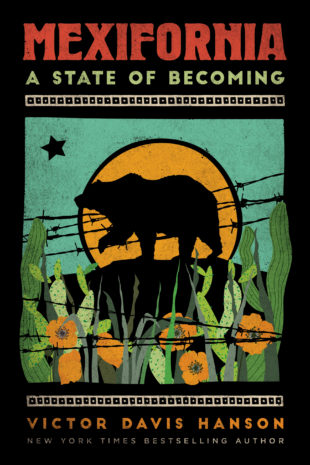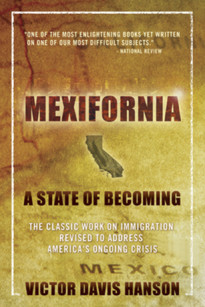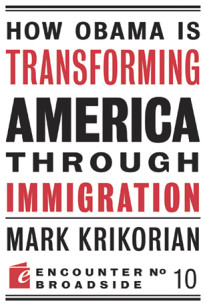Mexifornia, Twenty Years Later
As I write in mid-March 2021, the southern border of the United States is porous. Traffic across it is fluid, and unchecked to a degree not seen in the recent forty-year history of massive illegal immigration. Tens of thousands of immigrants—most from Central America and Mexico, many of them unaccompanied minors, some of them members of cartels or gangs—are crossing illegally every day. They arrive in the country unvetted and unimpeded. Panicked administration officials suddenly assert that the visibly permeable border is “closed.”
Millions of would-be immigrants boast of renewed hopes of entering the United States without legal permission. They express relief at the end of the restrictionist Trump administration. They have been incentivized through the celebration of Trump’s departure by many of the loudest and most influential people in the U.S. government, popular culture, and academia. Messaging that the new Biden administration is mostly against whatever Trump was for has provided encouragement to make the trek northward, as many border crossers unapologetically admit.[i]
More specifically, illegal immigrants claim they were emboldened by Joe Biden’s widely reported executive orders stopping further border wall construction. They were heartened by news of an imminent relaxing of border enforcement, a return to “catch and release” policies in the detaining of illegal aliens, promises to allow would-be refugees to have their claims adjudicated inside the United States, and Washington’s backing off from agreements in which Mexico was to patrol its borders to prevent Central Americans in transit from entering the U.S, illegally. Many had heard rumors of serial multimillion-person amnesties that would soon make the facts of illegal entry and unlawful residency irrelevant. Optimistic phone texts from friends and relatives who had successfully crossed the border inspired thousands more to try.
Some entrants wear T-shirts expressing their thanks to Joe Biden. In interviews, some have voiced demands that Biden keep his campaign promises of an open border, as if they were U.S. voters rather than foreign nationals. In response to domestic pushback over the border chaos, Biden administration officials have hedged with incriminating qualifiers. “We are not saying, ‘Don’t come.’ We are saying, ‘Don’t come now,’ because we will be able to deliver a safe and orderly process to them as quickly as possible,” said Alejandro Mayorkas, the new secretary of homeland security, at a White House briefing in March.[ii] This was the clearest admission from any U.S. administration in memory that people arriving (later) illegally and en masse will be excused from legal consequences and given preference over those who go through proper legal channels and patiently wait for years to immigrate to America. The administration’s message of “don’t come now, come later”—as Representative Henry Cuellar (D-TX) phrased it—seems to translate into something like this: “We wish to change the demography of the United States, but not in such a dramatic fashion as to attract media attention and provoke public opposition.”
Officials in the new administration seem shocked at the public unease with their open-border agenda. They had assumed that the public was more evenly divided over immigration enforcement, given the controversies of the restrictionist Trump years. But polls in March already showed that over 57 percent of Americans were opposed to President Biden’s nonenforcement policies. Apparently the idea of allowing unvetted foreign nationals to enter the United States—and without any testing for Covid-19 when American citizens are still locked down, restricted in their travel, and not yet fully vaccinated—does not win majority support. Yet the Democratic Party’s progressive base has persisted in pushing radical changes in immigration policy, despite their increasing unpopularity.[iii]
An open U.S. border appears to be losing favor even among Mexicans and Central Americans. Perhaps they have learned that illegal immigration is ultimately as harmful to their own societies as to America. It breaks families apart. Breadwinners vanish and are unlikely to return permanently. Thousands become ill or fall victim to predation on their way north. Emboldened cartels and criminals profit from the migrations. Some expatriates in the United States grow hostile to their homeland, as the remittances they send back out of their hard-won earnings remind them just how inept and callous are the social services there.
Some Latin American governments have become uneasy at losing tens or hundreds of thousands of their own citizens so rapidly, especially as fertility rates in Latin American are starting to resemble those of North America. Nayib Bukele, the conservative reformist president of El Salvador, has seen two million people flee his country for the United States in recent years, and has long lamented this mass exodus as more deleterious to his own nation than useful to America.[iv]
After years of acrimonious negotiations with the Trump administration, Latin American leaders had finally hammered out agreements to keep their own citizens from crossing borders unlawfully. They did so in part to avoid consequences such as trade penalties and U.S. taxes on some $100 billion in remittances sent annually to Central America and Mexico‚ an astronomical figure four to five times higher than when I first wrote Mexifornia.[v]










